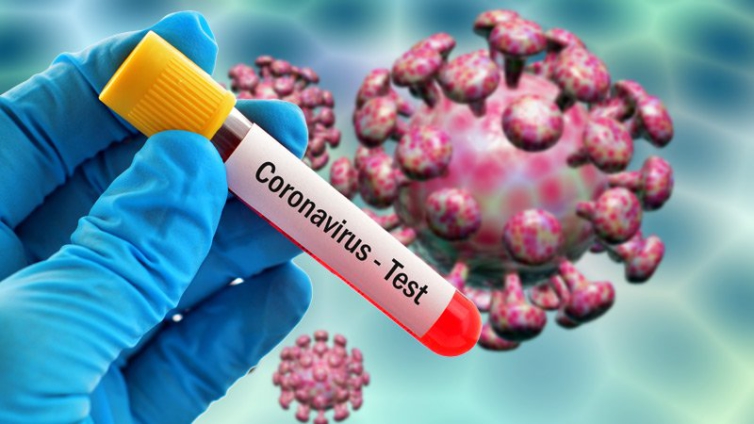A research scientist at the Medical Diagnostics Department of the Kwame Nkrumah University of Science and Technology (KNUST) has expressed worry over the inability of Ghana Health Service (GHS) to identify the 11th patient's source of contraction of the novel coronavirus.
Dr Michael Owusu’s concern follows the announcement on March 19, 2020, of two more cases of COVID-19 in Ghana, raising the total to 11.
The two cases were recorded at Kumasi in the Ashanti Region.
The first is a "59-year-old Ghanaian woman, resident in the United Kingdom who recently returned to Ghana,” the website of GHS reported.
The service further revealed that “the second case is a 61-year-old Lebanese male trader and resident in Kumasi. He felt unwell and reported to a health facility with fever (temp 39.4°C), and cough. The sample tested positive for COVID-19.”
But conspicuously missing in the Lebanese patient’s case is his travel history.
According to Dr Michael Owusu, who is also a researcher at the Kumasi Centre for Collaborative Research (KCCR), the inability of the Ghana Health Service’s communique to identify the source where this patient may have contracted the virus is cause for alarm.
“This is a bit worrying to me… If you have followed through all the 10 cases where the Ghana Health Service has been able to specifically tell us where the people came from so we can classify all the 10 as imported cases.
"But for the very one who is a Lebanese, you could see that the information is not that detailed, which means that we don’t seem to know or perhaps not aware of the status of this very person,” he told Evans Mensah on Joy FM's Top Story Thursday.
He explained that there are two levels of transmission.
"The first level deals with imported cases. So cases come in, you identify these cases, follow them up, if they develop symptoms you test, and if they are positive follow their contacts, if they also become positive you test them and manage them".
Community transmission, which Dr Owusu describes as the second level, is a stage where “individuals in a community are exposed and then they also transmit to others.”
On the back of this categorisation the researcher quizzed, “where did this Lebanese patient get this disease from?”
He also feared the worst if indeed the Ghana Health Service is yet to uncover the source, who the researcher hoped, is not unknowingly transmitting the COVID-19 virus at the community level.
“Is it that he got into contact with someone who had traveled in? Is it that he was engaged in trading and was exposed to another person? These are questions that will begin to cause some of us to think through that is it possible that there is an ongoing community transmission that somebody, who is called a Patient Zero, is now spreading and by whatever chance this Lebanese has been exposed,” he lamented.
Dr Michael Owusu encouraged authorities to “find that very source patient, identify, quarantine, test and manage the patient as such.”
“If you don’t find the source then it means the person will go ahead and then spark what we call community transmission, meaning many of those who will come into contact with the person will end up getting the disease.”
He called on the Ghana Health Service to come clear with some clarity on the latest cases.
The World Health Organisation on Wednesday warned Africa to “prepare for the worst” as the coronavirus begins to spread locally as many countries on the continent begin to see a rise in COVID-19 cases over the past week.
Latest Stories
-
Gold Board initiative yields $3 billion economic boost in 4 months – Kwakye Ofosu reveals
1 hour -
Kwakye Ofosu reveals money saved from paid TV ban at Jubilee House
2 hours -
14 Years of production: Ghanaians see oil as neither blessing nor curse — Research
3 hours -
Judge orders Columbia student Mahmoud Khalil released on bail
3 hours -
Dr. Peter Terkper declares GNAFF Presidency bid with bold vision
4 hours -
Teenage pregnancy declines in Akatsi North as leaders call for sustained action
5 hours -
NIB, NACOC destroy $350m worth of cocaine following court order
5 hours -
Keta-Akatsi Catholic Diocese honours health workers at 33rd World Day of the Sick
6 hours -
Suspect arrested for burglary and theft at Kasoa Nyayano
6 hours -
US resumes visas for foreign students but demands access to social media accounts
6 hours -
Indian High Commission collaborates with VRCC and UHAS to champion physical, mental wellness in Volta Region
6 hours -
This Saturday on Newsfile: Galamsey fury, NPP early primaries and effects of Israel-Iran war
7 hours -
African Heads of States, Caribbean and Global Business Leaders to gather in Abuja Nigeria for 32nd Afreximbank annual meetings
7 hours -
GES, Brilliant Educational Consult train teachers in Kumasi to boost their competencies
8 hours -
DIPPER Lab launches IoT Training Programme to equip students with practical tech skills
8 hours

